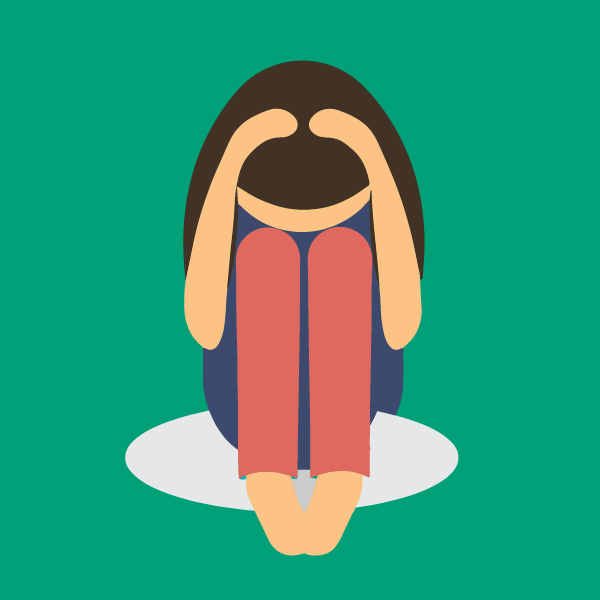What is Anxiety?

Harry Barry (2010) describes anxiety as ‘an uncomfortable state of hyper-alertness due to fear’ in which ‘the body’s internal stress system is constantly activated’. Alan Carr (2001) draws a distinction between ‘normal fear’ which serves the adaptive evolutionary function of warning us about genuine environmental dangers, and ‘anxiety disorders’ in which people experience ‘irrational fears of situations which do not threaten their survival’.
Characteristics of anxiety disorders include:
- selective attention to potential threats in the environment (scanning your surroundings for possible dangers and dwelling on them)
- threat-oriented thinking
- physiological arousal (e.g. can’t relax, pulse racing)
- avoidance behaviour (e.g. avoiding situations that make you anxious)
- disruption of interpersonal relationships (colleagues, partner, friends, family)
- restricted lifestyle (e.g. ‘I used to enjoy X, but I don’t do that any more).
What is an anxiety disorder?
A person may be diagnosed with a ‘disorder’ when their anxiety issues are seriously interfering with their enjoyment or quality of life. Many people live with such problems for years. Sadly, some may never seek professional help.
Anxiety disorders include:
- Generalised Anxiety Disorder
- Obsessive Compulsive Disorder (including problems with ‘hoarding’ or intrusive thoughts)
- Post Traumatic Stress Disorder
- Social Anxiety Disorder (Social Phobia)
- Panic Disorder (Panic Attacks)
- Phobias
- Separation Anxiety and other Childhood Anxiety Disorders

While there are various theories on the causes of Generalised Anxiety Disorder (Carr 2001), its manifestations are generally agreed, and include frequent uncontrolled or excessive worrying combined with a range of physiological symptoms (APA 1994), including:
1. feeling restless or ‘on edge’
2. easily fatigued
3. concentration difficulties
4. irritability
5. muscular tension or pain
6. sleep disturbance
Around 5% of people will suffer Generalised Anxiety Disorder during their lifetime. Many people with an anxiety disorder suffer from more than one, and their anxiety issues are also often combined with high rates of alcohol or drug abuse, or depression. There can be a strong atmosphere of anxiety within a family that can maintain the anxiety of one or more family members, despite the best efforts of the individual to change (Carr 2001).
Those affected by anxiety disorders are often ‘perfectionists’ (Barry 2010).
The treatment of anxiety problems
Counselling / psychotherapy is an effective treatment for anxiety. In more severe cases, a multi-disciplinary approach, involving a combination of medication and counselling is often used and can also be effective (Carr 2001). Changes to diet and lifestyle can also be very helpful (Holford 2010).
© Andrew McLellan 2013
Disclaimer: This article is for general information purposes and represents only the understanding and / or views of the author. It is not intended as a substitute for professional medical advice. If you suspect you may be suffering from an anxiety disorder, and you have not already contacted your GP, you are strongly advised to do so as soon as possible.
References and further reading:
American Psychiatric Association (APA) (1994) Diagnostic and Statistical Manual of Mental Disorders, 4 edn. DSM-IV. Washington DC: APA.
Barry, H., (2010) Flagging the Problem: A New Approach to Mental Health, 2 edn. Dublin: Liberties.
Carr, A., (2001) Abnormal Psychology. Hove: Psychology Press.
Holford, P., (2010) The Feel Good Factor: 10 Proven ways to boost your mood and motivate yourself. London: Piatkus.
Copyright personaltherapy.ie